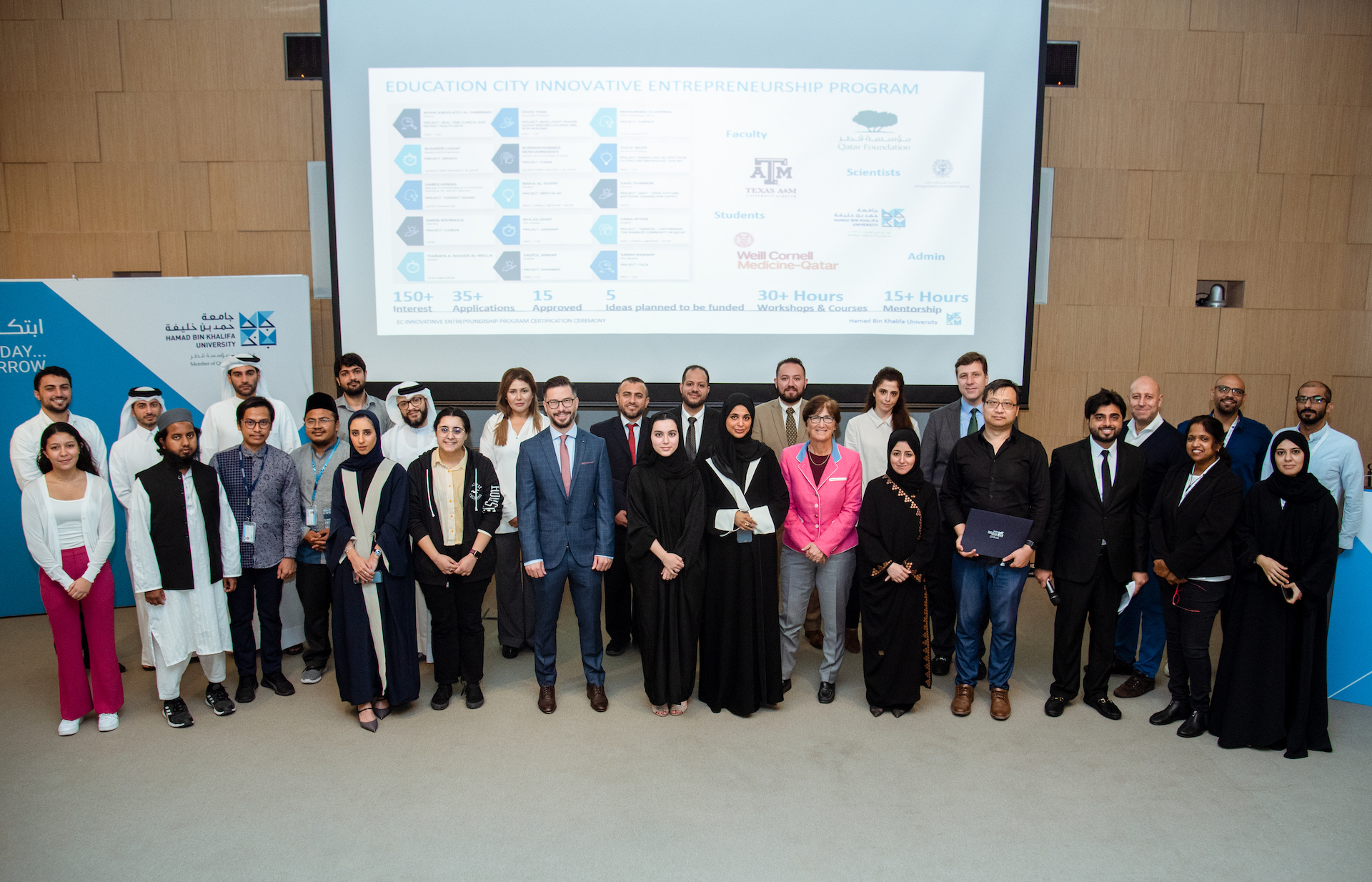HBKU offers innovators and entrepreneurs unparalleled access to knowledge and networks.

Hamad Bin Khalifa University (HBKU) concluded its Innovative Entrepreneurship Program’s Capacity Building Workshops with a certification ceremony on October 25 in the presence of guests from across Qatar Foundation (QF). The workshops formed part of the capacity building component of the 18-month Education City (EC) Innovative Entrepreneurship Program, which selected 15 candidates in the first round.
The innovators participating in the program include faculty, scientists, students, and senior administrators representing QF, the College of Science and Engineering (CSE) and Qatar Environment and Energy Research Institute (QEERI), both part of HBKU, and QF partner universities, Georgetown University in Qatar (GUQ), Texas A&M Qatar (TAMUQ), and Weill Cornell Medicine - Qatar (WCM-Q).
Focused on helping them advance their entrepreneurial ideas and projects, the intensive training workshops were delivered by academics from the EC community including HBKU’s College of Law and College of Islamic Studies, HEC Paris in Qatar, Qatar Science and Technology Park (QSTP), and Qatar Business Incubation Center (QBIC). These offered theoretical knowledge and practical tools covering innovative entrepreneurship, systematic innovation, leadership, project writing, idea pitching, business model and business plan preparations, as well as intellectual property (IP) protection.
Commenting after the certification ceremony, Dr. Nadir Yildirim, Innovation Director at HBKU, said: “It’s been rewarding to work alongside the candidates during these workshops and see them develop a clear understanding of how to take their innovations forward. This has been the vision of the Education City Innovative Entrepreneurship Program from the start; to give aspiring entrepreneurs unmatched access to knowledge, resources, and networks to unlock their innovation potential. The program has brought these innovators out of the labs and classrooms to grasp the benefits of an ecosystem created to systematically propel innovation.”
Dr. Nadir added: “The work of the Innovation Center is a tangible outcome of HBKU’s institutional commitment to incubate innovative research and business models that have strong potential for growth. It is part of a deliberate focus to strengthen the innovation ecosystem both within and outside HBKU.”
Commenting on behalf of the MentorMe project group members, Maha Al Marri said: “We are honored to be a part of this program and to have completed the workshops, which have had a significant impact on our startup project. We are eager to implement our project and work to assist students who are transitioning from high school to university.”
In parallel with their capacity building training, the entrepreneurs have been preparing their projects to apply to HBKU’s newly launched Entrepreneurship Program Fund (EPF). Participants will have the chance to pitch their ideas at the upcoming ‘Demo Day’ in mid-2023. The EPF is broadly aimed at supporting QF entrepreneurs with industry-driven innovations, and increasing the local capacity, responsiveness, and private enterprise.
For more information on HBKU’s Innovation Center and its Education City Entrepreneurship Program, please visit https://innovation.hbku.edu.qa/entrepreneurship-program.





